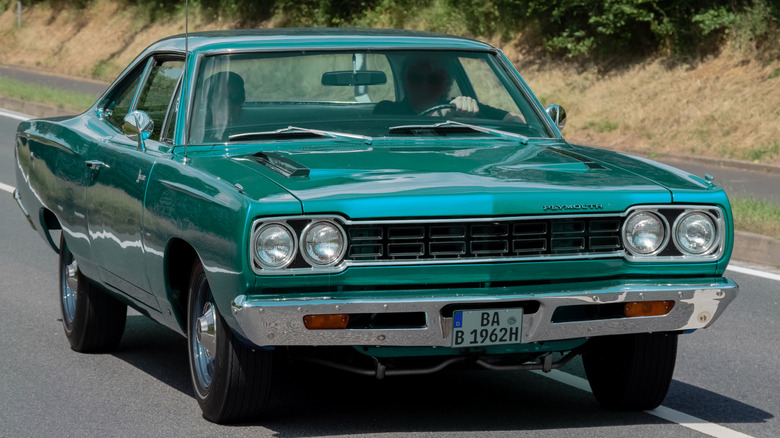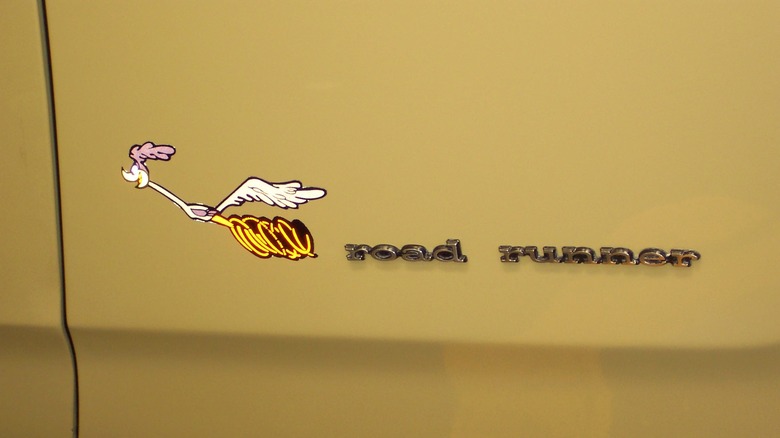How The Legendary Plymouth Road Runner Got Its Name
Anyone with even a passing familiarity with animation knows about Looney Tunes, Warner Bros. stable of legendary cartoon characters like Bugs Bunny, Daffy Duck, and more. Looney Tunes has been around since the 1930s, steadily growing in both popularity and marketability in the following decades. Looney Tunes was everywhere back then- you name a piece of merchandise, it was all but guaranteed there would be a version of it with a Looney Tunes character slapped on it.
You would think this only applies to kid-related things like toys and lunchboxes, but in fact, there was quite a lot of Looney Tunes for the grownups as well, on things like office supplies and neckties. Perhaps one of the most impressive bits of Looney Tunes branding, however, came about in the form of the 1968 Plymouth Road Runner, a car that was meant to sell the Chrysler brand to the younger (or much younger) generation.
[Reinhold Möller, CC BY-SA 4.0, via Wikimedia Commons, cropped and scaled.]
The Road Runner: Fast and spunky
The Road Runner design was meant to serve as an affordable muscle car to entice the young hot-rodders of the era. The concept was similar to the Plymouth GTX but with a more trimmed-down interior and greater customizability. However, Chrysler was concerned that this concept alone wouldn't be enough to appeal to the younger folks.
The idea arrived at the suggestion of the developers, who had been watching Looney Tunes cartoons. Who's the fastest, most untouchable member of the Looney Tunes cast? None other than the Road Runner, perpetual nemesis of Wile E. Coyote. Like a firework, the crew almost immediately settled on naming their new car the Road Runner.
Of course, negotiating with Warner Bros. for the character's likeness was a challenge, but when Chrysler noted that it could just call it the "Roadrunner," i.e. the real-life bird, Warner realized it had its back to the wall and signed on for $50 grand. The car was decked out in Road Runner imagery, including a special air cleaner cover, an optional decal in the glove box, and, coolest of all, a custom horn meant to replicate the character's signature "meep meep!"
Not only was the car appealing to young adults, but even children would ask their parents to buy it. Even if they didn't buy a Road Runner, the parents might still be willing to check out the other Plymouth cars in an ingenious little bit of marketing psychology.
[sv1ambo, CC BY 2.0, via Wikimedia Commons, cropped and scaled.]

